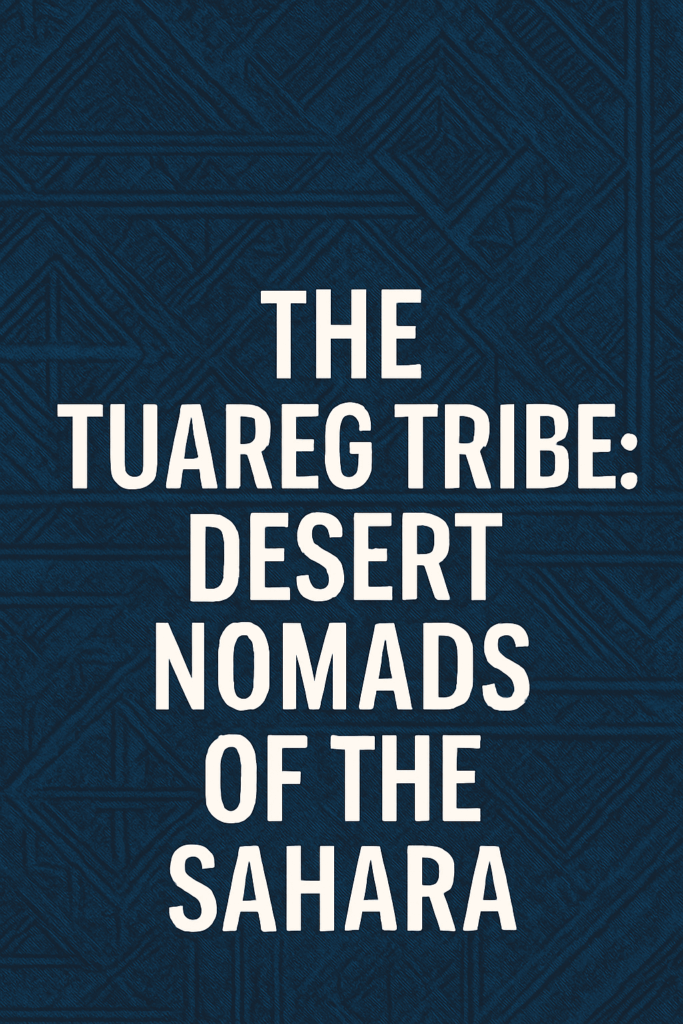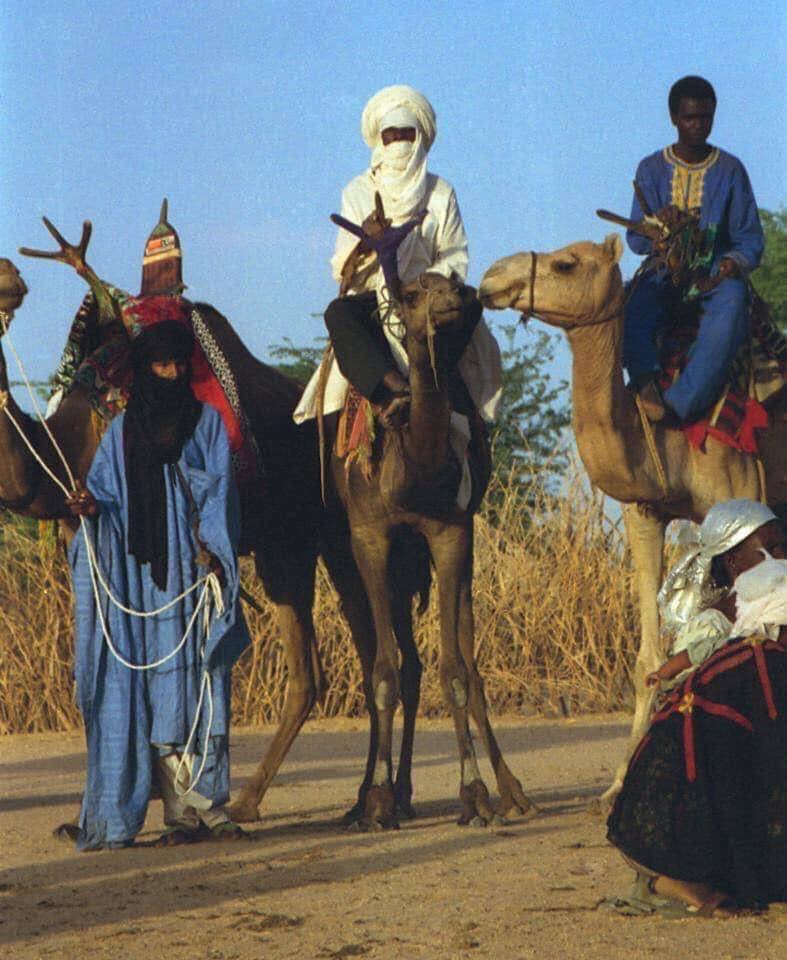Introduction
The Tuareg people, often called the “Blue People” of the Sahara, are a unique and resilient ethnic group known for their rich cultural heritage, striking indigo garments, and nomadic lifestyle. Tuareg are spread across several countries in North and West Africa, the Tuareg have preserved their ancient traditions while adapting to modern challenges. Because of their nomadic lifestyle, they move from one country to another for pasturing.
Also Read: History and Origin of Swahili Language
Tuareg were given different names by travelers, orientalists, and historians, some of whom began using the term “blue men” because of the blue clothing worn by the Tuareg people, along with the special fabric dyeing methods they used that transmitted color to the skin. Also, the Tuareg, however, refer to themselves as “Imuhagh.” But the Tuareg name is what has been know by many and that’s what many know them with.
Origin and History of the Tuareg Tribe
The Tuareg are a branch of the larger Berber ethnic group and have lived in the central and western Sahara for over a millennium. Which means, Tuareg is also the language of the Tuareg people, but there are a number of dialects that vary from tribe to tribe, including Tamasheq, Tamajaq, and Tamahaq. Their origin traces back to ancient Berber kingdoms that once ruled parts of North Africa. Historically, they were skilled traders, controlling trans-Saharan caravan routes that linked West Africa with the Mediterranean world. Their language, Tamasheq, is written in the ancient Tifinagh script.
Where Are the Tuareg Found?
The Tuareg people are dispersed across five major countries due to their nomadic lifestyle and where to find pasture for their cattle. They are: Niger, Mali, Algeria, Burkina Faso and Libya at approximately 1.2 million. The Tuareg community in Libya, which is culturally distinctive from Tuareg in other countries, is estimated to range from 60,000 to 250,000, yet a lack of clear records makes precise figures hard to come by. It is clear, however, that the Tuareg are a minority group in Libya. They are primarily inhabited in the Sahara Desert, living in small nomadic or semi-nomadic communities.
Tuareg Religion and Beliefs
The Tuareg are predominantly Sunni Muslims, but their practice of Islam incorporates pre-Islamic Berber traditions. They observe Islamic practices while also honoring ancestral customs, like spiritual poetry and ritual chanting with some practicing Christianity.
Tuareg Culture and Traditions
Tuareg culture is deeply symbolic and guided by oral tradition, poetry, and a code of honor called “Asshak.” Key elements include: Indigo-dyed clothing (which stains their skin blue), Nomadic herding and camel rearing, Rich oral literature and storytelling, Men famously wear tagelmusts (face veils), while women have more social freedom and influence in decision-making, unlike many neighboring tribes.
Economy
The Tuareg have traditionally been semi-nomadic herders, living in small tribal groups made up of about 30 to 100 families. Their way of life centers on raising animals such as camels, goats, cattle, and chickens. Their economy depends largely on livestock, farming, and trade. Although they come from a nomadic background, the Tuareg have adjusted to different environments while preserving their cultural heritage.
Tuareg Food and Cuisine
Due to the harsh desert environment, Tuareg cuisine is simple and based on availability. Common foods among the Tuareg include: Millet and dates, Goat and camel meat, Lamb stew (Taguella) served with flatbread baked under hot sand, Mint tea, often served ceremoniously. Food is not only sustenance but also part of their hospitality and communal lifestyle.
Tuareg Festivals and Celebrations
The Tuareg celebrate several seasonal and cultural festivals, often centered on music, storytelling, and camel racing. Notable festivals among the Tuareg include: Festival au Désert in Timbuktu, Mali – a global music event, Cure Salée Festival in Niger – celebrating the end of the rainy season. Traditional instruments like the imzad and tende drums are used during festivals.
Tuareg Marriage and Family Life
Marriage among the Tuareg is marked by intricate rituals and a strong matrilineal structure. The key customs of Tuareg are: Marriage tents set up by the bride’s family, Poetry exchange between lovers, Matrilocal living – husbands often move into the wife’s family compound. Women play a central role in the family, and daughters often inherit tents and livestock.
You Can Also Read: The History of Jukun In Nigeria
Conclusion
Preserving a Noble Heritage
Despite modern pressures on the continued existence of culture, the Tuareg people remain a symbol of resilience, pride, and cultural richness. Their traditions, wrapped in layers of blue cloth and sand-swept poetry, continue to inspire anthropologists, historians, and travelers alike. Let keep promoting cultures and try to separate culture from modernization. Modernization is good, cultures are good too.
Action
Which African culture inspires you in culture generally? You can share and also comment below so as to keep our culture alive!


